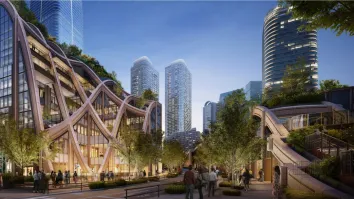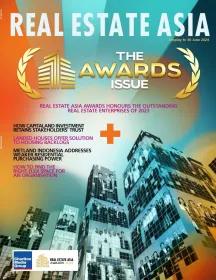
Indonesian property sector gets massive boost from government incentives
New measures aim to boost transactions and development activity in the real estate sector.
The Indonesian government is targeting the economy to grow by between 4.5% and 5.3% in 2021. According to Savills, to achieve the target, the government is also very aggressive in their programs to distribute COVID-19 vaccines to fight the pandemic. By April, the total population to have received a vaccine was around 15 million, consisting of health and public workers as well as the senior population.
Here’s more from Savills:
In the property sector, the government recently announced a couple of new incentives to boost transactions and development activity, in the hope that it would support other industries thus helping to accelerate economic recovery. The first is a relaxation of the minimum down-payment for home loans to 0% (effective from March to December 2021) – this will help young buyers with limited savings.
The second incentive is full exemption for VAT (10% of property value) on ready-stock residential valued up to IDR2 billion/ unit and a 50% tax exemption on residential between IDR2 billion and IDR5 billion/unit (effective from March to August 2021). The market responded with enthusiasm as evidenced by a strong pick-up in sales in several residential projects in the Greater Jakarta area. Major developers with large inventories benefited as they could also provide additional price discounts which successfully lured both end-users and investors. We expect this positive momentum to continue for the remainder of the year, which could potentially extend to 2022 along with the anticipated diminishing of the COVID-19 pandemic.
A similar optimism was also felt in the industrial sector as the country continues to race to become a leading production base in the ASEAN region. In order to attract global manufacturers to set up their facilities in Indonesia, the government has developed several new industrial estates particularly on Java, targeting major global companies in the automotive sector including electric vehicle (EV) and car battery production. This has also attracted some regional investors to build modern industrial facilities particularly from Japan and Korea. In most cases, the launch of new industrial estates initiated by the government as well as the private sector also includes the development of townships and commercial districts – this is expected to support the development of the local property market in the long run.
With a robust middle-class population, Indonesia’s economy continued to be driven by consumption and e-commerce has gained traction in the past five years. A rapid increase in local e-commerce growth has supported demand for modern logistics, which has triggered further development. This has attracted both local and foreign investors to secure their fair share of the market and enjoy first-mover advantage. Over the past few years, large institutional investors like GIC and regional logistics developers such as LOGOS and ESR have expanded to Indonesia. After China, Indonesia is seen as the next big thing in Asia’s e-commerce market and the logistics sector should thrive as a result.


















 Advertise
Advertise


